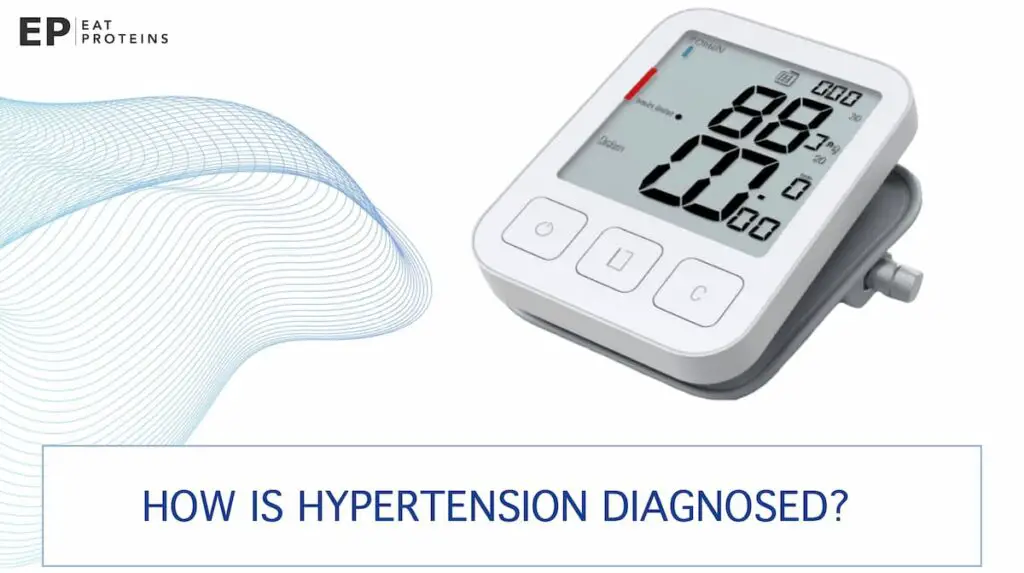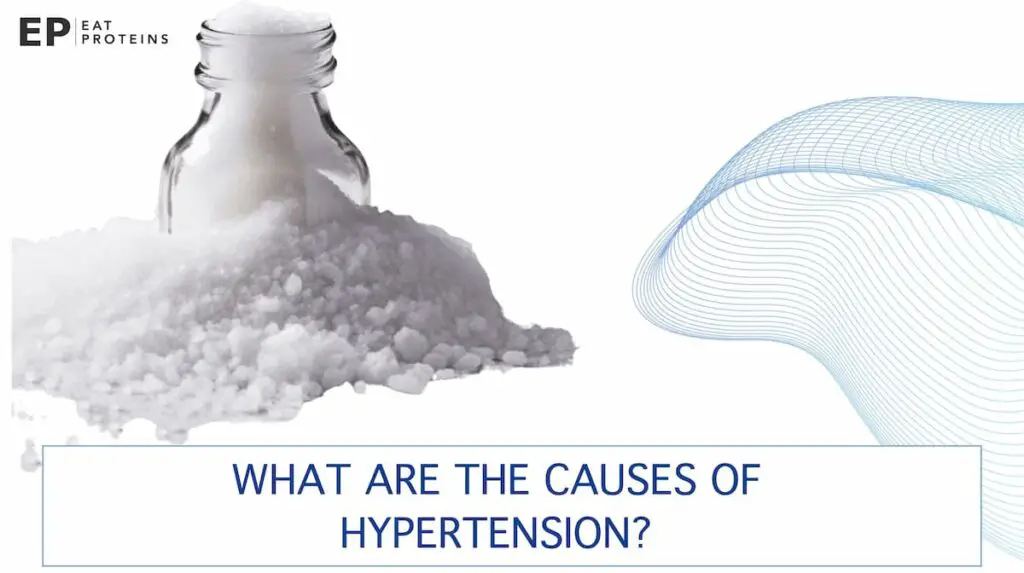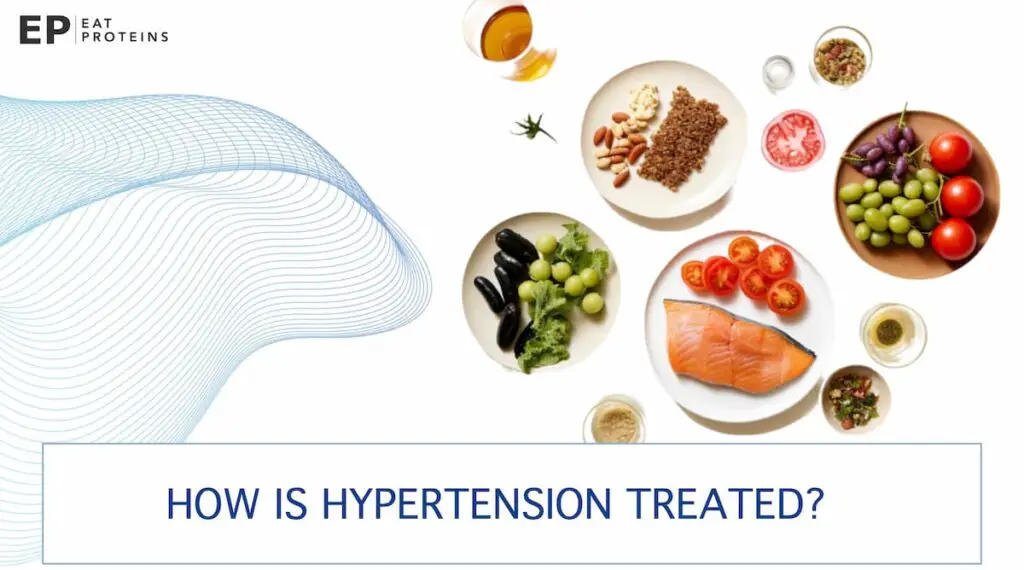High Blood Pressure, also known as hypertension, is defined as a persistent elevation of blood pressure above 130/80 mmHg. The main cause of hypertension is a combination of genetic and environmental factors. The main symptom of hypertension is often asymptomatic, but in some cases, individuals may experience headaches, dizziness, or nosebleeds.
The main treatment for hypertension includes lifestyle changes such as reducing salt intake, increasing potassium intake, and engaging in regular physical activity, as well as pharmacological interventions when necessary. Maintaining a balanced diet, low in sodium and high in fruits, vegetables, and whole grains, is important in managing hypertension.
What is hypertension?
Hypertension is a condition characterized by persistently high blood pressure in the systemic arteries. It is defined as a systolic blood pressure (SBP) of 140 mmHg or higher and/or a diastolic blood pressure (DBP) of 90 mmHg or higher. Approximately one in four adults worldwide have hypertension.
According to a 2015 study by Richard J. Johnson, Professor of Medicine and Chief of the Division of Kidney Diseases and Hypertension at the University of Colorado, the prevalence of hypertension has increased rapidly since 2000, with 3.5 billion adults having non-optimal SBP and 874 million adults having SBP ≥140 mmHg. Hypertension is the most important modifiable risk factor for cardiovascular disease, chronic kidney disease, cognitive impairment, and all-cause death.
When was hypertension discovered?
Hypertension was discovered by Frederick Mahomed in the 1870s through blood pressure measurements. Scipione Riva-Rocci invented the BP cuff and mercury manometer in the 1890s, leading to common blood pressure measurements. Insurance companies recognized increased mortality in those with hypertension by 1906.
Measurement of blood pressure became a standard procedure by clinicians with a cutoff of 140/90 mmHg defined as hypertension. Scipione Riva-Rocci developed a practical method for measuring systolic blood pressure using a mercury manometer and an inflatable cuff.
How is hypertension diagnosed?
Hypertension is diagnosed based on blood pressure measurements. The American Heart Association defines hypertension as having a systolic blood pressure of 130 mmHg or higher, or a diastolic blood pressure of 80 mmHg or higher.

The diagnosis of hypertension requires multiple blood pressure readings on different occasions. Individuals with blood pressure in the range of 120-129/less than 80 mmHg, are considered to have elevated blood pressure and are at risk for developing hypertension. Blood pressure should be measured in a calm and quiet environment, with the patient resting for at least 5 minutes before measurement.
What are the tools to diagnose hypertension?
The tools to diagnose hypertension include accurate blood pressure measurement using a sphygmomanometer, risk assessment through evaluating cardiovascular disease risk factors, and detection of organ damage through laboratory testing and imaging.
What are the causes of hypertension?
The causes of hypertension, according to Richard Johnson, MD, include a combination of environmental, pathophysiological, and genetic factors. Genetic factors account for approximately 35-50% of the trait variance in hypertension, while environmental factors such as high sodium intake also play a significant role.

- Environmental factors: High sodium intake, low potassium intake, obesity, excessive alcohol consumption, and physical inactivity contribute to the development of hypertension.
- Genetic factors: Hypertension often has a multifactorial gene-environment cause. Positive family history is common, with genetic factors accounting for 35-50% heritability. Genome-wide association studies have identified approximately 120 genetic loci associated with blood pressure regulation.
- Aging: Arterial stiffness, changes in vascular collagen, and atherosclerosis increase the likelihood of developing hypertension with age.
- Renin-Angiotensin-Aldosterone System (RAAS) dysfunction: The RAAS plays a role in blood pressure regulation. Malfunctions in this system can cause increased mean blood pressure and variability, leading to hypertension and target organ damage.
- Natriuretic peptide deficiency: Natriuretic peptides, such as atrial natriuretic peptide (ANP) and brain natriuretic peptide, have natriuretic and vasodilator properties, maintaining sodium balance in the body. Deficiency in these peptides increases the risk of insulin resistance and hypertension.
- Endothelial dysfunction: The endothelium, which lines the blood vessels, regulates vascular tone and salt sensitivity. Endothelial dysfunction, characterized by impaired vasodilation and increased oxidative stress, is a key factor in the development of hypertension.
- Sympathetic nervous system overactivity: Individuals with hypertension often have increased sympathetic nervous system activity, leading to higher blood pressure. Increased renal sympathetic nerve activity and sodium reabsorption play a significant role in obesity-related hypertension.
- Inflammation and immune system dysfunction: Inflammation and immune system dysregulation have been implicated in the pathogenesis of hypertension. Chronic inflammation can contribute to endothelial dysfunction and increased blood pressure.
- Secondary hypertension: Some individuals may develop hypertension as a result of another underlying condition, such as kidney disease, hormonal disorders (e.g., hyperaldosteronism), or certain medications. It is important to note that these causes may interact and contribute to the development of hypertension in a multifactorial manner.
What are the symptoms of hypertension?
According to the American Journal of Physiology-Renal Physiology, these symptoms that are commonly associated with hypertension.
- Headaches
- Dizziness
- Blurred vision
- Chest pain
- Shortness of breath
- Fatigue
- Irregular heartbeat
- Nosebleeds
- Facial flushing
- Blood in urine
What are the health risks of hypertension?
The following list shows the health risks of hypertension.
- Increased risk of cardiovascular disease (CVD): Hypertension is the most important modifiable risk factor for all-cause morbidity and mortality worldwide. Elevated blood pressure is associated with an increased risk of CVD, including coronary heart disease, stroke, heart failure, and peripheral artery disease.
- Target organ damage: Persistently high blood pressure can damage various organs in the body, including the heart, brain, kidneys, and blood vessels. This can lead to conditions such as heart attack, stroke, kidney disease, and vascular dementia.
- Kidney disease: Hypertension is a leading cause of chronic kidney disease. The increased pressure in the blood vessels damages the delicate structures in the kidneys, impairing their function over time.
- Eye problems: Hypertension can affect the blood vessels in the eyes, leading to damage to the retina (hypertensive retinopathy). This can result in vision problems and even blindness if left uncontrolled.
- Cognitive impairment: There is growing evidence linking hypertension to cognitive decline and an increased risk of dementia, including Alzheimer’s disease.
- Aneurysms: Hypertension can weaken the walls of blood vessels, making them more prone to developing aneurysms. These are balloon-like bulges in the blood vessels that can rupture and cause life-threatening bleeding.
- Metabolic syndrome: Hypertension often coexists with other metabolic risk factors such as obesity, high blood sugar, high cholesterol levels, and insulin resistance. Together, these conditions increase the risk of developing type 2 diabetes and cardiovascular disease.
- Sexual dysfunction: Uncontrolled hypertension can contribute to erectile dysfunction in men and decreased sexual arousal in women.
- Complications during pregnancy: Hypertensive disorders of pregnancy, such as gestational hypertension and preeclampsia, can lead to complications for both the mother and the baby. These include premature birth, low birth weight, placental abruption, and maternal organ damage.
According to Richard Johnson, MD, these health risks can be significantly reduced through timely diagnosis, effective treatment, and lifestyle modifications such as adopting a healthy diet, regular physical activity, maintaining a healthy weight, limiting alcohol consumption, and managing stress. Regular check-ups and blood pressure monitoring are essential for early detection and management of hypertension.
How is hypertension treated?
Hypertension is generally treated through a combination of non-pharmacological approaches and pharmacotherapy, as outlines in this table.

Non-pharmacological management
- Reducing salt intake to less than 5g/day
- Increasing potassium intake to at least 3.5g/day
- Limiting alcohol consumption to moderate levels (up to 2 drinks per day for men and 1 drink per day for women)
- Engaging in regular physical activity (at least 150 minutes of moderate-intensity aerobic exercise per week)
- Achieving and maintaining a healthy weight (BMI of 18.5-24.9 kg/m^2)
Pharmacotherapy
- Pharmacotherapy is recommended for individuals with hypertension who have already made lifestyle changes but still have blood pressure readings of 140/90 mmHg or higher (or 130/80 mmHg or higher for individuals with diabetes or chronic kidney disease).
What medications are used for hypertension?
First-line medications for hypertension include angiotensin-converting enzyme inhibitors (ACE inhibitors) or angiotensin II receptor blockers (ARBs), calcium channel blockers (CCBs), diuretics (such as thiazide-type or thiazide-like diuretics), and beta-adrenoreceptor blockers.In cases of treatment-resistant hypertension, device-based treatments such as renal denervation or baroreceptor stimulation may be considered as additional therapeutic options.
What lifestyle changes can help manage hypertension?
Lifestyle changes such as reducing salt intake, increasing potassium intake, moderate alcohol consumption, regular physical activity, and weight loss can help manage hypertension.
How does diet affect hypertension?
Diet plays a significant role in hypertension management. A complete diet plan rich in fruits, vegetables, whole grains, lean proteins, and low-fat dairy products, known as the DASH (Dietary Approaches to Stop Hypertension) diet, can lower blood pressure by approximately 11 mmHg for individuals with hypertension. Additionally, reducing sodium intake to less than 1,500 milligrams per day can further lower blood pressure.
Is the DASH diet effective in managing hypertension?
Yes, the DASH diet is effective in managing hypertension. This diet emphasizes fruits, vegetables, whole grains, lean proteins, and low-fat dairy products while limiting sodium, saturated fats, and added sugars. Following the DASH diet can lower blood pressure by 8-14 mmHg.
How does obesity affect hypertension?
Obesity is strongly associated with hypertension, with approximately 65-75% of hypertensive individuals being obese. For every 10 kg/m2 increase in body mass index (BMI), the risk of developing hypertension increases by 75%. Losing weight through lifestyle modifications, such as diet and exercise, can lead to a significant reduction in blood pressure.
Does weight loss through dieting reduce hypertension?
Yes, weight loss through dieting can reduce hypertension. Losing weight can significantly lower blood pressure, with a reduction of 1 mmHg for every kilogram of weight loss. Losing 5-10% of body weight can lead to a substantial decrease in blood pressure levels.
How does sodium affect hypertension?
Sodium affects hypertension by increasing blood pressure due to its role in fluid balance and volume regulation. Excessive sodium consumption can lead to fluid retention and increased blood volume, putting strain on the blood vessels and raising blood pressure. The recommended daily sodium intake for adults is less than 2,300 mg, and a further reduction to 1,500 mg is recommended for individuals with hypertension.
Does a high-salt diet increase the risk of hypertension?
Yes, a high-salt diet increases the risk of hypertension. Studies show that excessive sodium consumption contributes to increased blood pressure. Reducing sodium intake to less than 2,300 mg per day can lower blood pressure by 2-8 mmHg.
Can a low-sodium diet effectively lower blood pressure?
Yes, a low-sodium diet can effectively lower blood pressure. It is recommended to consume less than 1,500 mg of sodium per day, as this can lead to a greater reduction in blood pressure, typically around 5-6 mmHg.
Can exercise lower hypertension?
Yes, exercise can lower hypertension. Regular physical activity, such as aerobic exercise and resistance training, has been shown to reduce systolic blood pressure by an average of 4-9 mmHg.
Does limiting alcohol control hypertension?
Yes, limiting alcohol intake can help control hypertension. Consuming excessive amounts of alcohol is associated with high blood pressure, and reducing alcohol consumption can lower blood pressure levels. It is recommended that men limit their alcohol intake to no more than two standard drinks per day, while women should limit it to one standard drink per day.
Does caffeine worsen hypertension?
Yes, caffeine can temporarily raise blood pressure, but it does not appear to worsen hypertension in the long term. The effect of caffeine on blood pressure varies among individuals, and regular caffeine consumption may develop tolerance. However, individuals who are sensitive to caffeine or have uncontrolled hypertension should limit their caffeine intake.
Are dietary changes enough for hypertension?
No, dietary changes alone may not be enough to control hypertension, but they play a crucial role in its management. A diet low in sodium and high in fruits, vegetables, whole grains, and low-fat dairy products has been shown to lower blood pressure.
